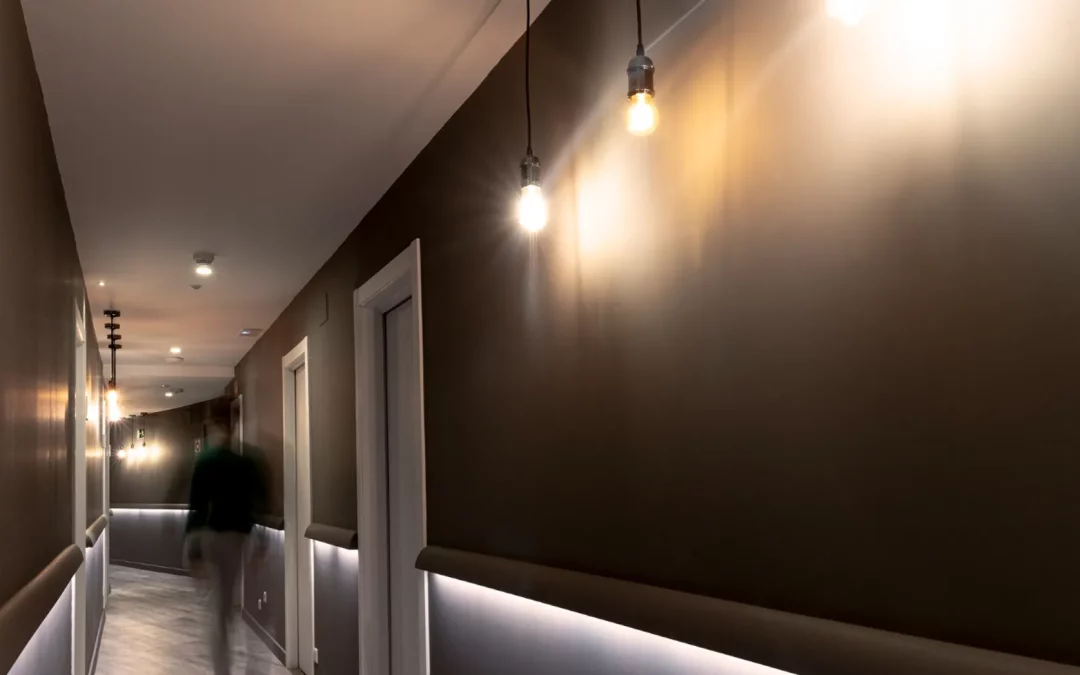In today’s hospitality sector, energy costs are a pressing concern, exacerbated by the climate crisis and rising living expenses. Reducing energy use is both a financial and ethical necessity for hotels striving to remain competitive and sustainable.FuturePlus, with extensive experience in hospitality sustainability, recently launched the Impact Certified Hotel Guide. This resource showcases how sustainable practices are transforming the industry to cater to the rising expectations of eco-conscious travellers, including the adoption of cutting-edge energy-saving measures.This blog draws on insights from our
IMPACT CERTIFIED Hotel Guide to highlight best practices for energy efficiency, enabling hospitality businesses to drive impactful and measurable change.
Understanding Your Energy Use
The UK hospitality sector consumes about 20,910 gigawatt-hours (GWh) annually, with a potential savings estimated to be around the 4,000 GWh per year mark.The first step toward energy efficiency is understanding your energy consumption patterns. This involves:
- Monitoring Energy Use: Track energy consumption over 12 months to establish a baseline. Consider electricity, oil, and gas usage to create a comprehensive picture of your energy footprint.
- Identifying Opportunities: Analyse how energy is used across operations to pinpoint potential savings. For instance, lighting, heating, cooling, and appliances often present significant opportunities.
- Reviewing Tariffs: While finding competitive energy rates is challenging, shopping around is still worthwhile. Opting for green energy tariffs can further reduce your environmental impact.
Setting Reduction Targets
Setting achievable reduction targets can help maintain focus and motivation across your team:
- Define goals, such as reducing overall energy use or focusing on specific departments.
- Increase investment in energy-saving measures as a percentage of your energy budget.
- Encourage employee-driven initiatives to identify energy-saving opportunities.
At FuturePlus, we specialise in helping businesses like yours monitor energy use and set actionable, meaningful targets to achieve measurable progress. Let’s work together to create a more sustainable future for your organisation.
Strategies for Energy Efficiency
1. Policies and Training- Implementing clear policies and providing employee training are essential steps:
- Include energy-saving practices in your Employee Handbook.
- Offer regular training to staff, emphasising the importance of energy efficiency.
- Develop an Environmental Policy that outlines sustainable practices for the entire organisation.
2. Renewable Energy- Transitioning to renewable energy sources is a powerful way to reduce carbon emissions:
- Investigate green energy tariffs, ensuring they align with your sustainability goals.
- Consider generating your energy through solar panels, biomass systems, or heat pumps. Not only does this cut costs in the long term, but it also enhances your reputation as an environmentally conscious business.
3. Heating and Cooling- Heating and air conditioning account for a significant portion of energy use. To optimise these systems:
- Low-Cost Actions: Adjust thermostat settings, and zone heating, and ensure proper ventilation.
- Medium-Cost Actions: Improve building insulation and install ceiling fans or heat covers for pools.
- Higher-Cost Actions: Invest in energy-efficient heating systems, such as heat recovery ventilation or solar reflective glass.
4. Appliances- Switching to energy-efficient appliances can drastically reduce energy bills:
- Replace traditional bulbs with LED lighting.
- Upgrade to appliances with high energy efficiency ratings.
- Install occupancy sensors and dimmer switches to optimise lighting use.
5. Operational Changes- Simple changes to daily operations can make a big difference:
- Go paperless and optimise digital tools to reduce your overall carbon footprint.
- Use dishwashers and washing machines only when fully loaded and at eco-settings.
- Regularly defrost and maintain refrigeration units to ensure they operate efficiently.











































